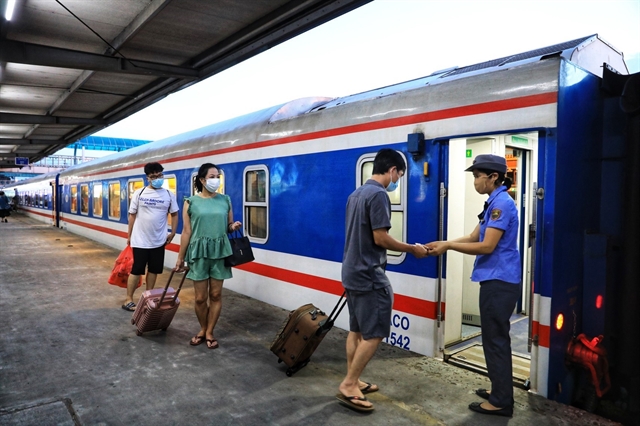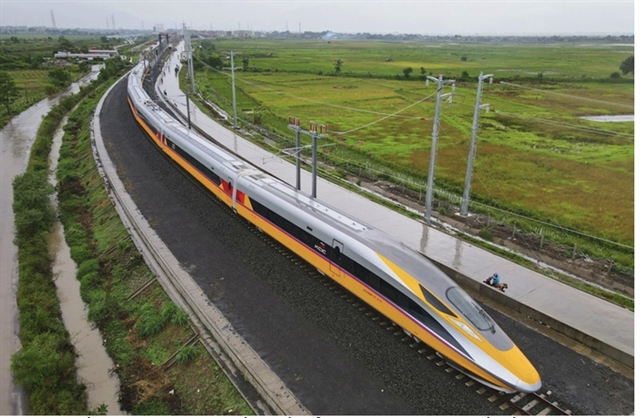 Society
Society

 |
| Illustration photo of the North-South high-speed train. — Photo taichinhplus.com.vn |
HÀ NỘI — Construction of the North-South high-speed railway project is expected to create up to 332,300 jobs and a further 14,000 positions once trains are up and running.
The Government has assigned the Ministry of Transport to proactively co-ordinate with ministries and agencies to train staff to work in construction and operation of the high-speed railway.
According to the Institute of Transport Strategy and Development (Ministry of Transport), human resources are one of the key factors determining the success of the investment, construction and operation of the project.
This human resource also ensures the ability to receive the technology transferring and master and maintain operation to increase the localisation rate and encourage industrial development.
World experience shows that countries, that do their own research and development of high-speed railway systems such as Japan, France, Germany and Italy as well as those receive technology transfer and move towards mastering technology such as Korea, China and Spain, have to build national programmes on human resources development about up to seven years before investment and construction, according to the institute's research.
The North-South high-speed railway will begin construction in 2027 and put into operation phase 1 in 2032 and phase 2 in 2040.
The institute proposed that the work of developing human resources for the railway project needs prioritising as early as 2025.
The institute and the Việt Nam Railway Corporation (VNR) calculated that during construction, between 263,700 and 332,300 people will be needed, most must be highly skilled.
Budget for training is estimated from VNĐ19.7 trillion to VNĐ24.1 trillion (US$800,000 million to $1 million).
After completion, the project needs about 13,880 people to operate, of which 11,050 are direct workers and about 2,349 engineers.
However, the institute estimates that domestic human resources currently meet 80 per cent of the demand of basic construction works and the remaining 20 per cent for specialised techniques of high-speed train such as rail systems and signal information need an in-depth training to meet the requirements.
With such a large amount of money needed for training, the institute has proposed the Ministry of Transport develop and complete a policy for high-quality human resources as well as create appropriate mechanisms to attract foreign capital in human resource development. — VNS




